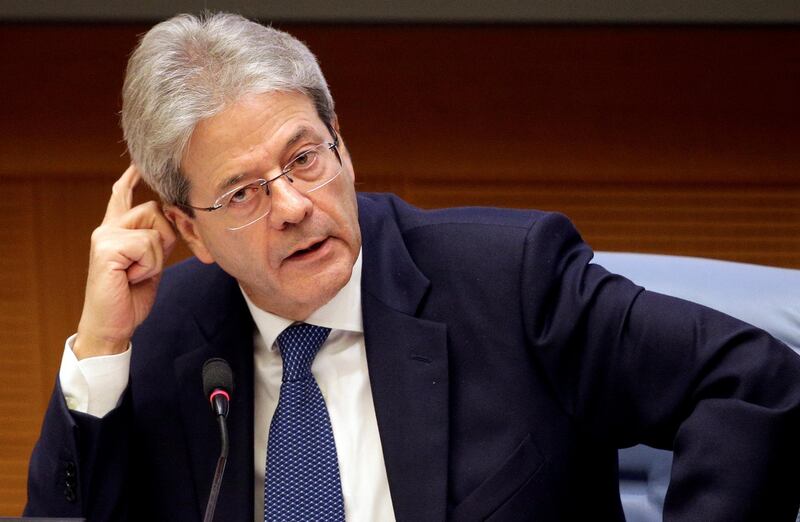Italy’s president triggered a three-way election battle on Thursday with the country’s emboldened populist leaders posing new challenges to the European Union and the stability of the eurozone.
The election pitches three groupings headed by three charismatic leaders, none of whom appear to have enough support to take control of Italy. The most widely expected outcome for the election, which will be held on March 4, is a grand coalition and months of potential political and economic uncertainty.
Polls suggest the Five Star protest movement (5SM) is on course to secure most votes following a dip in fortunes for the ruling centre-left Democratic Party, which survived a five-year term albeit with three different premiers. It has been damaged by splits within its ranks and a series of banking scandals.
With neither party looking capable of mustering sufficient lawmakers to run the country, the results could clear the way for a group of right-wing parties under the leadership of ex-premier Silvio Berlusconi, who is bidding to lead the country again despite convictions for tax fraud and a string of sex scandals behind him. His conviction means he is barred from becoming premier, a ruling he is challenging in the courts.
Mr Berlusconi, 81, who emerged more than two decades ago as an insurgent prepared to shake-up the system, has rebranded himself as an experienced political hand to counter the rise of the anti-Establishment 5SM.
The movement founded by comedian Beppe Grillo in 2009 has gone from a protest movement to a major political force with the potential to wrest power from the established parties.
A poll on Saturday gave the 5SM 29 per cent of voter support, compared to 23 per cent for the Democratic Party and 16 per cent for Berlusconi’s Forza Italia.
Analysts said electoral success for the 5SM – which has previously called for a referendum on Italy’s membership of the 19-nation eurozone – could spook markets and put it on a collision course with the EU over its opposition to anti-austerity measures.
“Italy will be the main source of concern and uncertainty about the future of the eurozone,” said Adriano Bosoni, senior Europe analyst for global intelligence firm Stratfor. “The risk is there, and the risk is real.
_____________
Read more:
[ Italy promises to airlift 10,000 migrants from Libya ]
_____________
5SM has previously shunned coalition deals with other parties making the other two groups more likely to win power, he said. Even if the 5SM did manage to win, any binding referendum on the eurozone would be unlikely as it would require a change in the constitution.
The threat, however, could be used as a bargaining chip in negotiations with the EU as they push for greater public spending, said Mr Bosoni.
All three main Italian groups are pushing for a loosening of agreed deficit targets agreed by eurozone nations during efforts to recover from the global financial crisis. Italy has the second highest public debt in the eurozone after that of Greece.
The rise of populist parties and causes have been a feature of recent European politics with Britain’s vote to leave the European Union and the rise of far-right groups all suggesting dissatisfaction with the continent’s established political forces.
"They will be dealing with an electorate that's not particularly optimistic about the future," said Mr Bosoni.
Support for the far-right has been fuelled by concerns over the mass migration of refugees prompted by conflict in North Africa and the Middle East, and is likely to be an issue in the Italian elections.
The country’s proximity to the North African coast has put it on the front line of the crisis. Its coastguard has been involved in the rescue of thousands of migrants and has struck a deal with Libya to reduce the flow.
Prime Minister Paolo Gentiloni cautioned against adopting the politics of fear during the campaign in his end of year news conference. “We mustn’t dramatise the risk of instability, we are quite inoculated against it,” he said.
He was meeting with the Italian president Sergio Mattarella on Thursday as the first step towards the dissolution of parliament before an election could be called.
Political analyst Wolfango Piccoli said the likely outcome of the election was a hung parliament. Long negotiations resulting in “at best a patched-up deal involving several parties” would follow, he said.






